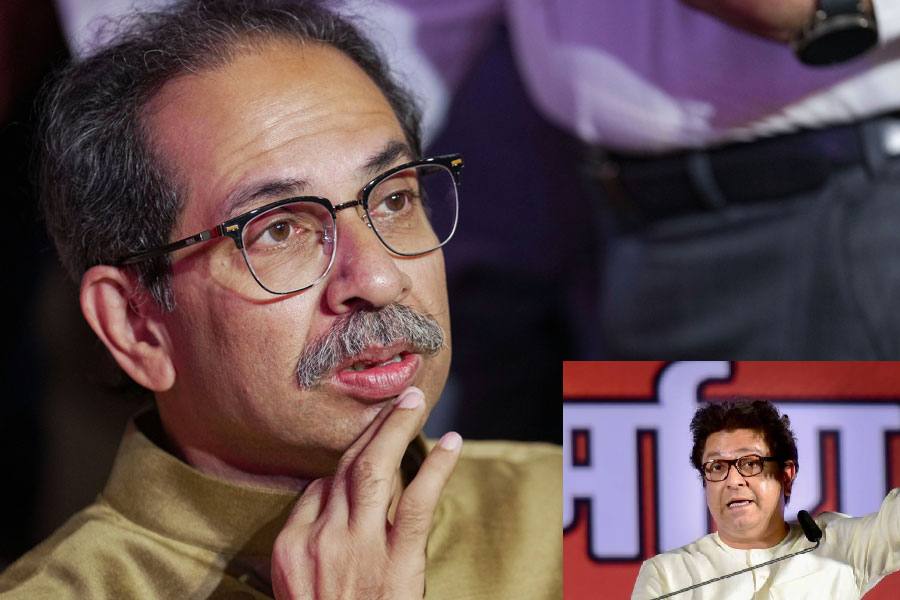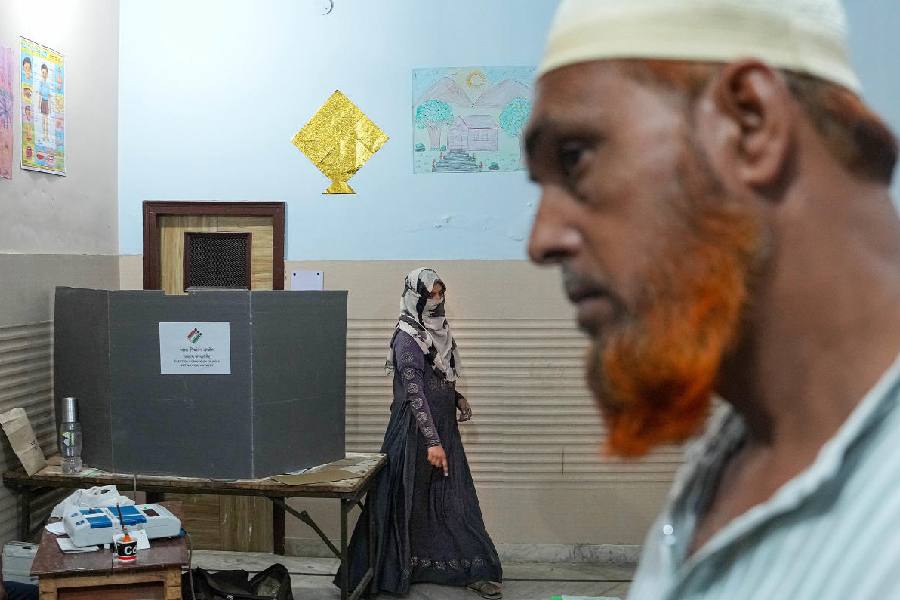Distorted memory
Sir — The Holocaust, one of the darkest chapters of world history, has spawned a wide array of both fiction and non-fiction. But several of these works have invited censure for perpetuating myths about mass genocide. A case in point is the recent Bollywood film, Bawaal. The film, which shows a young couple visiting a concentration camp in Auschwitz and imagining themselves being suffocated inside gas chambers, conflates marital discord with the Holocaust. While creative liberties are important for a work of fiction, such trivialisation is disrespectful to the memory of the victims of the Holocaust.
Riddhima Manna, Calcutta
Medical leap
Sir — The bioethics unit of the Indian Council of Medical Research has released a consensus policy on controlled human infection studies for public review. This can break new ground in clinical study in the country and is commendable. CHIS, which involves voluntarily exposing healthy volunteers to pathogens in a monitored environment, is riddled with ethical challenges. It also requires a well-trained and robust infrastructure to begin with.
In the past, several CHIS trials, including those conducted by the ICMR, have been mired in ethical violations. There is an urgent need to address these challenges. It is hoped that the new CHIS policy would pave the way for the examination of novel microbes and the calibration of human immune response to them with limited clinical intervention.
G. Champa, Patna
Hapless victims
Sir — Atrocities against women are common during times of conflict (“Barefaced”, July 26). Be it in Manipur or in Malda, women have always been at the receiving end of violence. It is thus unfortunate that instead of ensuring women’s security and justice, the ruling regime has been only resorting to whataboutery.
The ongoing Parliament session is witnessing an intense logjam owing to protests by Opposition parties demanding accountability from the government. However, the prime minister, Narendra Modi, has shamefully maintained silence over the issue. But the ruling party is not the only one to blame. Those in the Opposition have been similarly accused of being tone-deaf to women’s sufferings while in power.
Abhijit Chakraborty, Hooghly
Sir — Women’s bodies become sites of violence during strife. The sexual assault of two Kuki women amidst the communal clashes in Manipur is the latest example.
Crimes against women are an enduring problem in India. This is exacerbated by the fact that most of the rape cases go unreported. The huge backlog of such cases pending trial in courts is also a concern. The government should ensure justice to the two women.
Pinaki Nandy, Shillong
Valuable assets
Sir — Recognising cryptocurrencies as foreign assets can yield several benefits for the Indian government. First, it would enhance transparency in regulation and prevent illicit activities. Second, the government could generate additional revenue through taxation. Moreover, it would attract foreign investors, thus boosting the economy. It would also help foster innovation and generate employment.
Rajpal Singh Chouhan, Ujjain
Monsoon menace
Sir — The report, “City offers havens to mosquitoes” (July 26), should serve as a wake-up call for Calcuttans. Piles of garbage accumulating in several parts of the city turn into breeding grounds for mosquitoes. The recent death of a 10-year-old girl due to dengue should prompt us to follow safe hygiene practices. Civic authorities must take steps to drain out accumulated water from city pockets during monsoons.
Sikrity Ghosh, Calcutta
Sir — The onset of monsoon has signalled the return of the dengue menace. Dengue is spread through the Aedes aegypti mosquitoes, which can breed even in a spoonful of stagnant water. The municipality is only prodded into action whenever there is an upsurge of cases. This is deplorable.
Darshana Mitra, Calcutta
Smart kids
Sir — The Scripps National Spelling Bee competition in the United States of America has been dominated by Indian Americans over the years even though they comprise only 1% of the US population. Their exceptional ability to memorise gives them an edge over the other candidates.
Ranganathan Sivakumar, Chennai
Parting shot
Sir — It is disheartening to see cricketers behaving badly during a match. Unhappy with the umpiring decision, Harmanpreet Kaur, the women’s cricket team captain, recently shattered the stumps with her bat and criticised match officials (“2-game Ban for Harmanpreet”, July 26). Such hooliganism not only undermines the spirit of the game but also sets a poor example for others.
Mahajan Rohan, Jammu










